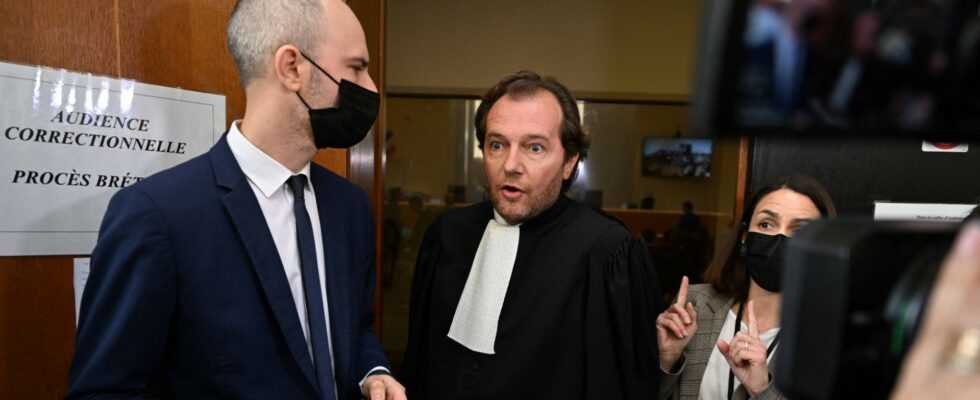Almost nine years after the accident, the trial of one of the worst rail disasters in France opened on Monday afternoon before the court in Évry (Essonne), which will judge the National SNCF Company for eight weeks, SNCF Réseau and a manager. On July 12, 2013, the derailment of an Intercity train at Brétigny-sur-Orge station (Essonne) killed seven people and injured more than 400.
“An important trial”
“It is obvious that with such a disaster, it is an important trial for the SNCF”, declared Emmanuel Marsigny, counsel for the National SNCF Company, before the hearing. SNCF wants justice to be able to decide “between two theses”: that of a “maintenance defect” retained by the investigation, and that of a “metallurgical defect making the accident unpredictable”, supported by the company .
“The SNCF never claimed that the system was perfect” but “never in view of the difficulties encountered, safety was at stake”, affirmed Maitre Marsigny. This Friday in July 2013, the reversal of a steel splint – a sort of large staple joining two rails – derailed the Intercités Paris-Limoges train 3657 traveling at 137 km/h (for a speed limit of 150 km/h).
Six people, aged 19 to 82, died. A seventh, seriously injured, died a fortnight later. Three were on the train and four on the platform. Seven years of investigation and battle of expertise will be deciphered during the trial. During the investigation, the investigating magistrates had underlined “the difficulties encountered” in collecting from the SNCF “essential documents making it possible to trace maintenance operations”.
They also regretted that the majority of the agents had been heard, before their hearings, by the company’s legal department “to receive instructions”, in the words of the judges. The investigation was also complicated with the theft of the railway worker’s computer, then found with an empty hard drive. Monday, Maitre Marsigny assured that the SNCF had “always collaborated” in the investigation. “There was never any question on the part of the SNCF or its legal department of interfering in any way whatsoever, or of obstructing the investigation”.
Several failures pointed out
The prosecution accuses the manager of the SNCF Réseau tracks (which succeeded Réseau ferré de France) of “mistakes” having “led to the absence of early renewal” of the track or to “insufficient staff”, as well as failures “in the organization, control and performance of maintenance operations” to the National SNCF Company (criminal heir to SNCF Infra, responsible for maintenance).
Aged 24 at the time of the events, the railway worker, local director, will have to answer for “a faulty assessment”: that of having carried out “only the last inspection of the tracks”, with “manifestly insufficient attention”, eight days before the derailment. He no longer works at the SNCF and is now married with three children, he said on the stand on Monday, wearing a dark blue shirt, black-rimmed glasses and his hair styled in spades with gel. .
To date, 435 victims have been identified. Among them, 184 are civil parties. Vincent Roux lost his girlfriend Morgane in the accident. “All my plans with Morgane suddenly disappeared,” he told AFP, outside the courtroom. “I am waiting for the truth and I am waiting for each of the people who have a responsibility in this tragedy to assume,” said the forty-year-old, who was also injured in the derailment.
What are the victims waiting for?
The trial is “essential” for the “reconstruction” of Lauriane Welter, 36, a train passenger who is suffering psychologically today. “This drama impacts my whole life. Today, everything is a ploy to live and to travel. I was robbed of my freedom of movement, despite multiple therapies,” she told AFP.
Nine legal persons make up the civil parties. For the Sud-Rail union, the instruction revealed “a permanent disorganization” and a “destructuring of work”, “of maintenance and its traceability” within the SNCF. Even today, “the logic of the ‘financial trajectory’ is, in all the reorganizations in progress in the SNCF, presented expressly as the first and absolute motivation, therefore taking precedence over security”, denounced the union in a press release.
For Maitre Gérard Chemla, lawyer for the association “Entraide et defense des victims de la catastrophe de Brétigny” (EDVCB), Fenvac and 24 civil parties, the latter are waiting “for the SNCF to tell the truth, for the actors to have an approach commensurate with the challenges”.
